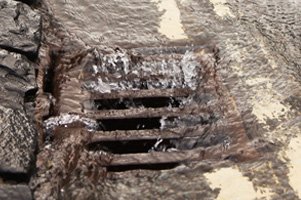Stormwater Management – The New Burden on Property Owners

It used to be the rule that rainwater runoff was not the responsibility of the landowner. The law recognized that water runs downhill. No longer. As EPA and the Pennsylvania DEP increase their emphasis on reducing pollutant discharges to the Chesapeake Bay, landowners are facing two challenges with regard to this previously minor concern.
First, any development of land that increases impervious surfaces (roofs, sidewalks, parking lots) is now heavily regulated. The rules now require that runoff after development be no greater than it was prior to development. DEP regulations require that the developer obtain a “discharge” permit for stormwater and contractually agree to limit runoff in perpetuity. And, to make things more challenging, mere storage of runoff in traditional stormwater basins, where it will evaporate or gradually soak into the ground, is no longer acceptable. Considerable engineering work now must be done to actively inject stormwater into the ground. The long term consequences of these new, unscientific requirements remain to be seen.
If you already own developed property you’re not off the hook. Municipalities are already being required to reduce their stormwater discharges and looming on the horizon is the threat of requiring treatment of stormwater. To address these issues, and to pay for them, municipalities are beginning to tax properties based on their stormwater runoff potential. Several Pennsylvania municipalities have already implemented a stormwater tax, and many more are considering it.
The purpose of the tax is two-fold: help pay for the unfunded mandate from EPA and DEP to reduce quantity and improve quality of municipal stormwater, and incentivize property owners to reduce their runoff into the municipal stormwater system. Many innovative solutions are being developed to help property owners cope with these new requirements, including pervious pavement, stormwater retention technology, and even “green” roofs.
Hence, whether you are buying property with an eye toward development; planning to further develop property you already own; or own commercial property with impervious surfaces, stormwater management should be near the top of your to-do list.

 (717) 232-5000
(717) 232-5000